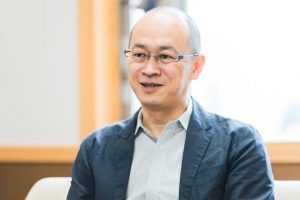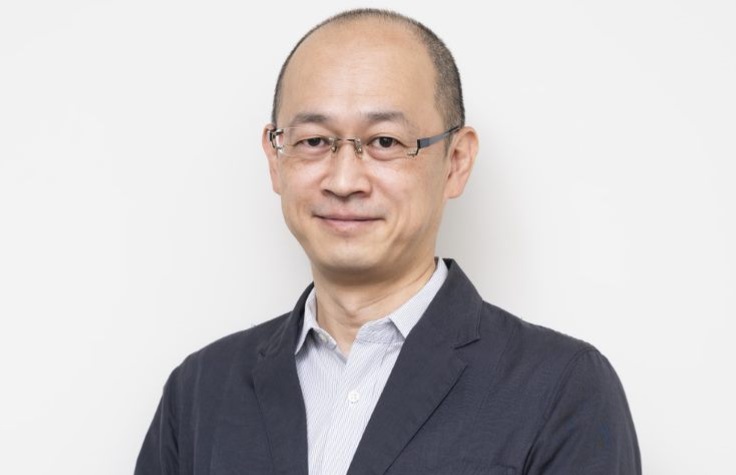I specialize in macroeconomics, particulary business cycles as well as income and wealth distributions. One example of my research is a paper I published that elucidates the statistical laws relating to the dispersion of household income and income tax rates. Macroeconomics is an area of study that have no definitive answers in practice. I believe that one of the challenges of economics is how to unravel questions regarding the status quo through research, and to find a balance that avoids entrenching inequality and yet promotes the entrepreneurship of citizens.
 I specialize in macroeconomics, particularly business cycles as well as income and wealth distributions. In a recent paper I studied stock price fluctuation patterns. If we look at the distribution of stock prices that fluctuate on daily basis, we still find exceptional events such as crashes or sudden booms with a certain probability, characterized by a heavy-tailed distribution. Why this happens has been one of my interests. Given that there is no such thing as an investor who possesses all the information in the stock market, traders infer the information that they do not know by observing the movements of stock prices. I hypothesized that price mediates and amplifies information, and explained the statistical pattern of a heavy-tailed distribution.
I specialize in macroeconomics, particularly business cycles as well as income and wealth distributions. In a recent paper I studied stock price fluctuation patterns. If we look at the distribution of stock prices that fluctuate on daily basis, we still find exceptional events such as crashes or sudden booms with a certain probability, characterized by a heavy-tailed distribution. Why this happens has been one of my interests. Given that there is no such thing as an investor who possesses all the information in the stock market, traders infer the information that they do not know by observing the movements of stock prices. I hypothesized that price mediates and amplifies information, and explained the statistical pattern of a heavy-tailed distribution.
The same concept can also be applied to household income and wealth distributions. Disparities exist even among the top 1% of the wealthiest, and the distribution has a self-similar structure in which the shape of the distribution does not depend on the cutoff point. It turns out that this is statistically the same as the stock price fluctuation patterns.
I sometimes introduce in my classes such topics as why these disparities are universally observed. While a certain level of disparity is not generally bad, as it is due to the emergence of the newly wealthy who were born in the midst of information technology and globalization, it is undesirable to have a persistent disparity. I believe that one of the challenges of economics is how to achieve balance while eliminating inequalities that are not acceptable.
 I became interested in economics in my high school days after reading the books of Prof. Hirofumi Uzawa, and the fact that I could make use of mathematics, which is my favorite subject, led me to enter university and begin studying macroeconomics in earnest under Prof. Katsuhito Iwai. While economics provides an unambiguous framework for analysis, a fascinating thing about the study of economic policy is that there are no definitive answers in practice. I find it both enjoyable and rewarding to use the limited information available to search for the best solution in an ever-changing environment.
I became interested in economics in my high school days after reading the books of Prof. Hirofumi Uzawa, and the fact that I could make use of mathematics, which is my favorite subject, led me to enter university and begin studying macroeconomics in earnest under Prof. Katsuhito Iwai. While economics provides an unambiguous framework for analysis, a fascinating thing about the study of economic policy is that there are no definitive answers in practice. I find it both enjoyable and rewarding to use the limited information available to search for the best solution in an ever-changing environment.
GraSPP is one of the most richly diverse schools at the University of Tokyo and is a welcoming place of academic learning. There is a palpable sense of seeking mutual improvement based on a desire to engage in public policy. Many of our students and lecturers have practical experience themselves, so the field of practice and the abstract learning environment will naturally blend together, with each student being able to learn with a sense of purpose.
 The outbreak of the pandemic has reminded us the importance of the public sector around the world. Public and international organizations with solid capacity are required to implement effective policies, and they cannot respond to changes simply by learning and following the processes constructed by their predecessors. GraSPP has been working to develop an understanding of the past, as well as the ability to adapt to new situations and propose new solutions. Our mission is to foster graduates with such capabilities for society.
The outbreak of the pandemic has reminded us the importance of the public sector around the world. Public and international organizations with solid capacity are required to implement effective policies, and they cannot respond to changes simply by learning and following the processes constructed by their predecessors. GraSPP has been working to develop an understanding of the past, as well as the ability to adapt to new situations and propose new solutions. Our mission is to foster graduates with such capabilities for society.
At the same time, with Asia’s presence in the world continuing to increase, the study of public policy in Japan will be of great significance. Interactions with students from various backgrounds will be a great asset for the future. I hope that all students who join GraSPP will find themselves engaged in this interesting time and place.



